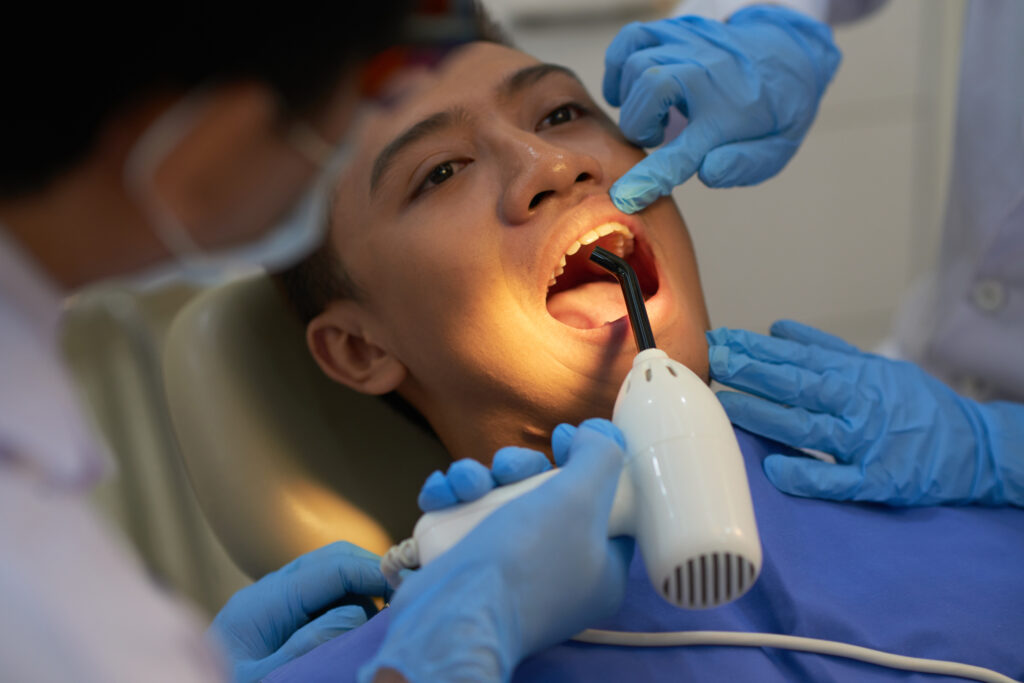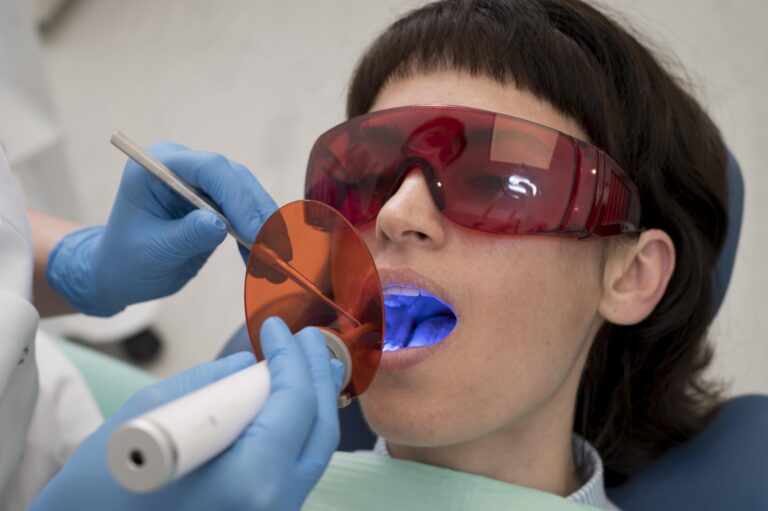Do you wake up with a painful jaw or headache? Do your teeth feel sensitive or appear flattened? If so, you might be suffering from a condition known as bruxism, or teeth grinding. This common dental issue affects many people, but understanding its causes, symptoms, and potential solutions can help you find relief.
What is Bruxism?
Bruxism is the medical word for teeth grinding, gnashing, or clutching. It often happens unconsciously, both during the day and at night while you sleep. While occasional teeth grinding might not be a cause for concern, chronic bruxism can lead to dental problems, headaches, and other health issues.
Causes of Bruxism
1. Stress and Anxiety: One of the most common causes of bruxism is stress and anxiety. When you’re tense, you may clench your jaw or grind your teeth without even realizing it.
2. Malocclusion (Misaligned Teeth): If your teeth don’t fit together properly when you close your mouth, it can lead to bruxism as your body tries to find a comfortable resting position for your jaw.
3. Medications and Substances: Some medications, such as certain antidepressants, can increase the risk of teeth grinding. Consuming caffeine or alcohol, especially before bedtime, can also contribute to the problem.
4. Lifestyle Factors: Smoking and excessive alcohol or drug use can increase the likelihood of bruxism.
Symptoms of Bruxism
Bruxism can have a range of symptoms, and they may vary from person to person. Some common signs of tooth grinding include:
Worn Down Teeth: Bruxism can lead to flattened, chipped, or fractured teeth.
Jaw Pain: You may experience soreness or pain in your jaw, especially in the morning.
Headaches: Frequent headaches, particularly in the temples, can be a symptom of bruxism.
Sensitive Teeth: Grinding can wear down tooth enamel, leading to increased tooth sensitivity.
Earaches: The pressure and muscle tension from teeth grinding can cause earaches.
Disrupted Sleep: If your partner notices the sound of your teeth grinding at night, it can disturb your sleep.

Solutions for Bruxism
The good news is that there are several solutions available to help manage and alleviate bruxism. Here are some options to consider:
1. Stress Management: Since stress is a significant contributor to bruxism, learning stress-reduction techniques like meditation, yoga, or deep breathing exercises can be highly beneficial.
2. Dental Devices: Dentists can provide custom-made mouthguards or splints to wear at night. These devices can protect your teeth from grinding and alleviate pressure on your jaw.
3. Behavioral Therapy: In some cases, behavioral therapy or counseling can help identify and address the underlying causes of bruxism, such as stress or anxiety.
4. Medications: Your healthcare provider may prescribe muscle relaxants or medications to help relax your jaw muscles.
5. Lifestyle Changes: Avoiding caffeine and alcohol, especially before bedtime, can reduce the likelihood of teeth grinding. Additionally, quitting smoking and moderating drug use can help.
6. Dental Correction: If misaligned teeth are contributing to your bruxism, orthodontic treatment or dental work may be necessary to correct the issue.
7. Regular Dental Check-ups: Routine visits to the dentist can help identify and address bruxism early on, preventing more severe dental problems.
Conclusion
Bruxism, or teeth grinding, is a common dental issue that can lead to various symptoms and complications if left untreated. It’s essential to pay attention to the signs and seek help if you suspect you have this condition. By addressing the underlying causes, managing stress, and using appropriate treatments like dental devices, you can reduce the impact of bruxism on your oral health and overall well-being. Don’t hesitate to consult with your dentist or healthcare provider if you’re experiencing symptoms of bruxism; they can help you find the right solutions for your specific situation.
Remember, taking action early can save you from more extensive dental problems down the road and help you enjoy a pain-free smile.




